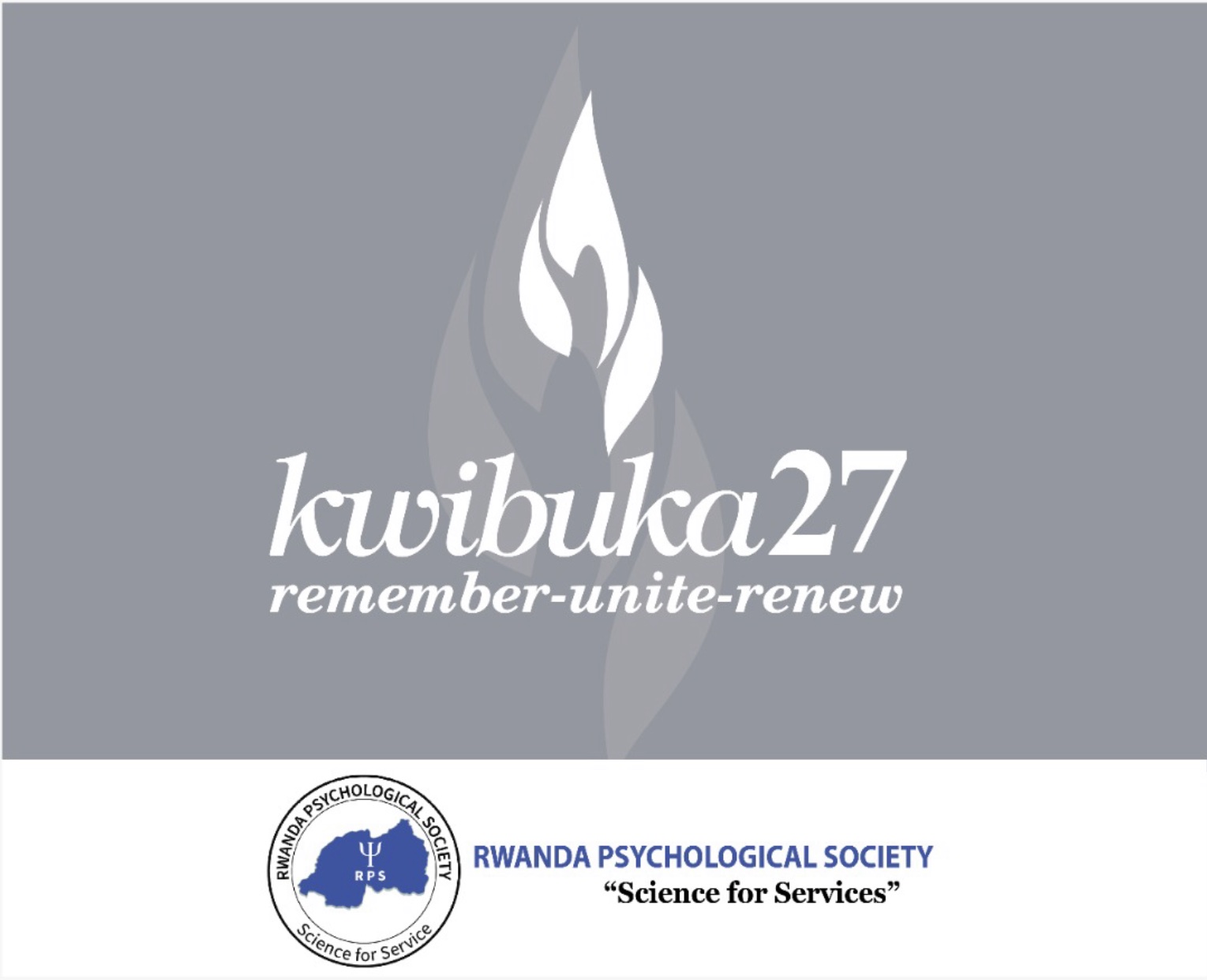The 27th Commemoration of the Genocide against the Tutsi - Kwibuka27 2021-04-12 02:32:55

The Rwanda Psychological Society (RPS) joins the entire Rwandan population and the whole world to honor the victims of the genocide against the Tutsis. It is also a special time to further support the survivors who are struggling to heal the wounds of this horror and to mourn the difficult losses caused by the unexpected death of their loved ones in the tragic and cruel circumstances of the genocide. While the country is gradually rebuilding itself, it should be considered that some survivors 27 years after continuously facing psychological and social difficulties resulting from the genocide. According to the recently published report by the Rwanda Biomedical Center (RBC, 2018), 52.2% (n = 663) of the genocide survivors who participated in the 2018 Rwanda Mental Health Survey (RMHS) were identified as having one or more mental disorders. The same report revealed the major depressive episode to be the most common mental disorder among genocide survivors (35.0%), followed by post-traumatic stress disorder (27.9%), panic attack (26.8%), and obsessive-compulsive disorder (11.6%).
Moreover, the Kwibuka27 is happening when Rwanda and the entire world are confronted with the COVID-19 pandemic, a pandemic that imposes health prevention measures including social distancing and many other social restrictions. As a result, COVID-19 prevention measures have limited the practice of mourning rituals usually referred to during the commemoration time. Those rituals are felt to contribute enormously to the mourning and grieving process that is triggered during the commemoration. Before the COVID-19 outbreak, Rwandans would gather and organize commemoration ceremonies and rituals, practices which were appreciated by many genocide survivors as useful during this period characterized by intense emotions. It goes without saying that the absence of these rituals that characterized the commemoration ceremonies could have a negative impact on the management of intense emotions in this period of the 27th commemoration of the genocide against the Tutsis. However, it should be noted that certain initiatives are taken to overcome this situation of social distancing. For example, we can take into account the various radio and television programs that broadcast programs related to emotional and psychological support to genocide survivors. These broadcasts are also a necessary means for the education of the Rwandan community on the values, attitudes, and behaviors appropriate at this time of the commemoration. Other initiatives use social media and bring together individuals who support each other. It is therefore everyone's responsibility to pay particular attention to the mental health needs of survivors of the genocide against the Tutsis in view of the particularity of this 27th commemoration of the genocide in a context of COVID-19 restrictions.
TWIBUKE TWIYUBAKA
